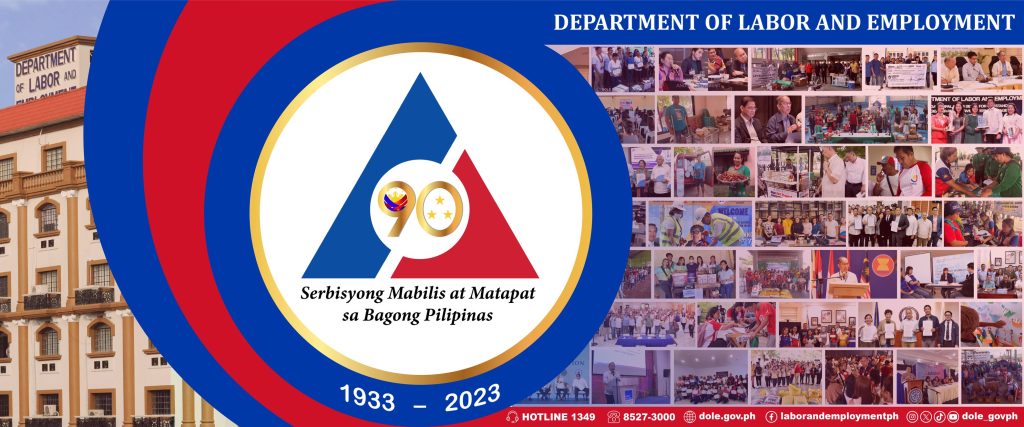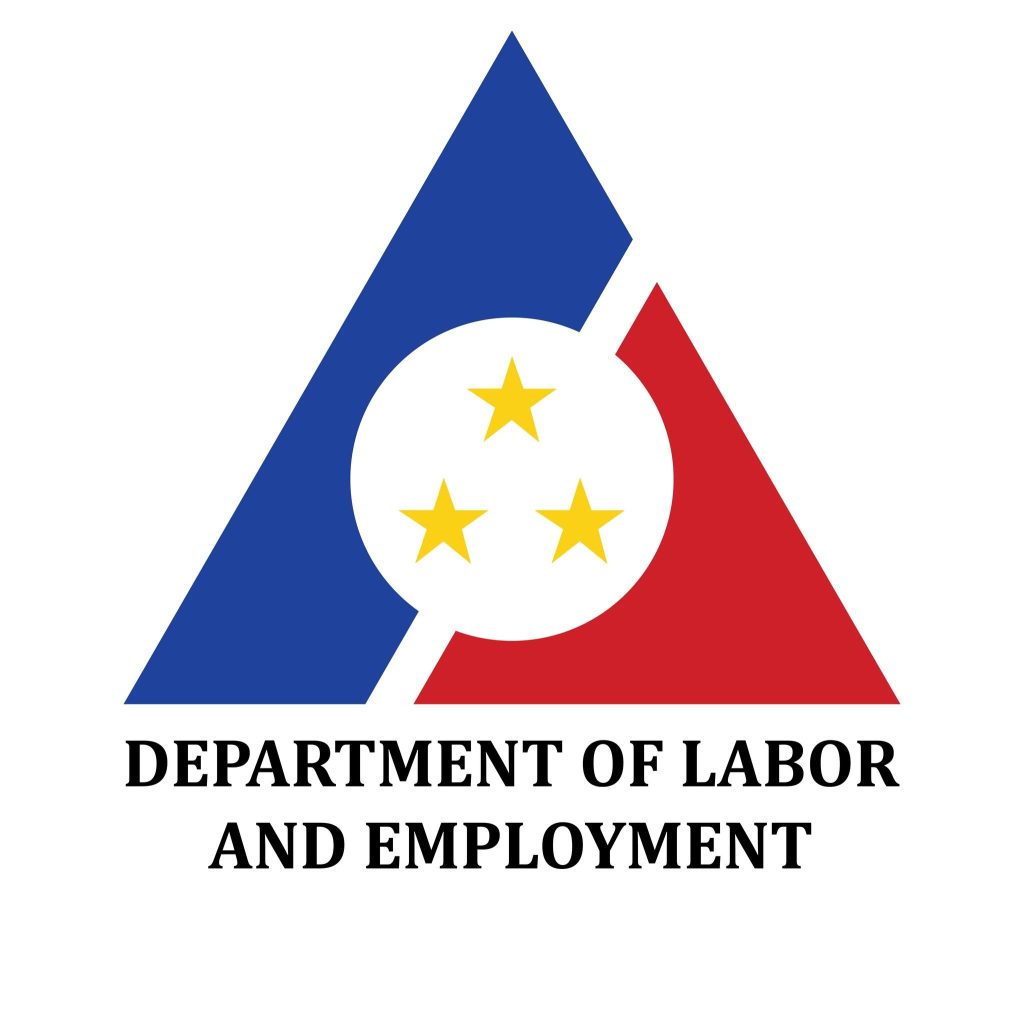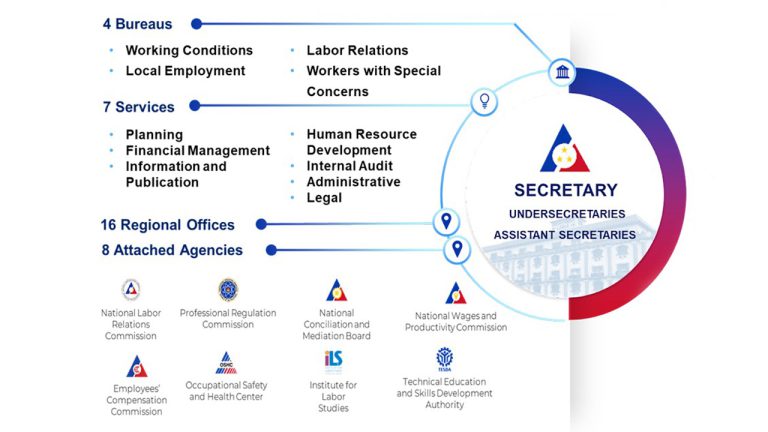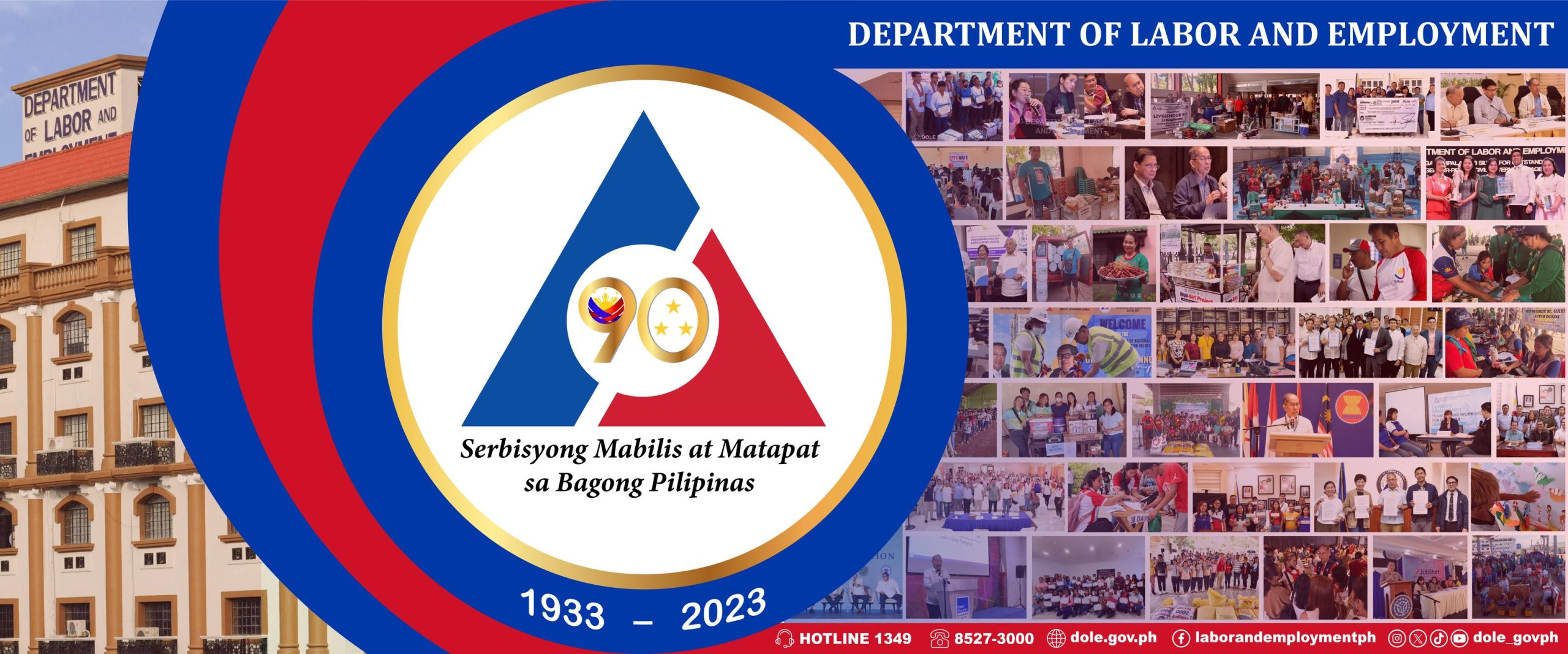The Department of Labor and Employment (DOLE) is a key executive department of the Philippine government responsible for formulating labor policies, implementing employment programs, and enforcing labor laws. Established in 1933, DOLE’s mission is to promote gainful employment opportunities, protect workers’ rights, and maintain industrial peace. Its vision is to ensure every Filipino worker attains full, decent, and productive employment.
DOLE helps Filipinos through various cash assistance programs aimed at supporting displaced, underemployed, and seasonal workers. The agency also offers programs that provide financial relief, especially during crises such as the recent COVID-19 pandemic. Knowing about DOLE and its programs is important to be able to enjoy these benefits. After all, without this knowledge, it is very easy for workers to miss out on the support that DOLE offers to aid their financial stability and overall well-being.
What is DOLE?
DOLE is the abbreviated form of the Department of Labor and Employment (DOLE). It refers to the Philippine government agency in charge of overseeing all labor and employment matters in the country. As an agency, DOLE has been operating since 1933, and has been creating and implementing policies that promote fair labor practices and protect workers’ rights. Sinceit was established, the agency has been serving as the policy-coordinating arm of the Executive Branch in the field of labor and employment as well.
DOLE’s primary objectives are to ensure gainful employment opportunities, safeguard workers’ welfare, and maintain industrial peace. It accomplishes these goals through various programs, such as employment facilitation services and labor laws compliance initiatives. Additionally, DOLE provides essential support through cash assistance programs, which offer financial aid to disadvantaged and displaced workers.

History
DOLE was established on December 8, 1933, with the enactment of Act No. 4121 of the Philippine Legislature. It started as the Bureau of Labor in 1908 and has since evolved through various iterations, becoming the Ministry of Labor and Employment in 1978. It reverted to its original name and finally the Department of Labor and Employment post-1986 People Power Revolution. Over the decades, DOLE has continuously evolved, effectively addressing the changing needs of the Filipino workforce, while focusing on employment promotion, worker protection, and industrial peace.
DOLE Logo

The DOLE logo is composed of a stylized triangle split into blue on the left and red on the right, mirroring the colors of the Philippine flag to signify national pride and commitment. At the center of this triangle is a white circle containing three yellow stars, representing the major island groups of the Philippines: Luzon, Visayas, and Mindanao. The triangle’s upward orientation symbolizes progress and development in the labor sector. The three stars emphasize the inclusiveness of DOLE’s mission to serve and protect workers from all parts of the country. Overall, the logo reflects DOLE’s dedication to fostering a fair and dynamic labor environment for all Filipinos.
DOLE Mission
“To promote gainful employment opportunities, develop human resources, protect workers and promote their welfare, and maintain industrial peace.”
DOLE Vision
“Every Filipino worker attains full, decent, and productive employment.”
Mandate
DOLE’s mandate is to administer and enforce labor and employment laws in the Philippines. The agency’s primary goals include:
- Promoting Gainful Employment Opportunities: Creating job opportunities for Filipinos through various employment facilitation programs.
- Protecting Workers’ Rights and Welfare: Ensuring that labor laws are followed and that workers are treated fairly.
- Maintaining Industrial Peace: Promoting harmonious relationships between employers and employees to foster a productive working environment.
Organizational Structure
DOLE is headed by a Secretary, supported by several Undersecretaries and Assistant Secretaries, each overseeing different clusters such as the following:

- Employment and Human Resource Development Cluster
- Workers’ Welfare and Protection Cluster
- Labor Relations, Policy and International Affairs Cluster
- Legislative Liaison and Legal Affairs, General Administration Cluster
The agency comprises various bureaus, including:
- Bureau of Local Employment (BLE)
- Bureau of Labor Relations (BLR)
- Bureau of Working Conditions (BWC)
- Bureau of Workers with Special Concerns (BWSC)
In addition to these, several attached agencies support DOLE’s operations, such as the following:
- Employees’ Compensation Commission (ECC)
- Institute for Labor Studies (ILS)
- National Conciliation and Mediation Board (NCMB)
- National Labor Relations Commission (NLRC)
- National Wages and Productivity Commission (NWPC)
- Occupational Safety and Health Center (OSHC)
- Professional Regulation Commission (PRC)
- Technical Education and Skills Development Authority (TESDA)
Benefits
The establishment of the DOLE offers numerous advantages to Filipino workers and the nation’s economy. These benefits include:
- Protection of workers’ rights and welfare, ensuring fair treatment and preventing exploitation.
- Promotion of gainful employment by facilitating job matching and placement
- Workplace safety and health by monitoring compliance with occupational safety and health standards.
- Conflict resolution and mediation of labor disputes, helping to maintain industrial peace and harmonious employer-employee relationships.
- Skills development through various training programs
- Social protection in the form of financial and welfare assistance to workers, especially in times of crisis
- Support for Overseas Filipino Workers (OFWs), including programs for the protection, welfare, and reintegration of OFWs
- Economic stability by promotion of fair labor practices and stable employment
Coverage and Beneficiaries
DOLE’s responsibilities include ensuring the welfare of the Filipino workforce. Its services extend to a wide range of beneficiaries, fostering a more equitable and thriving labor market.
1. Local Workers: DOLE safeguards their rights, ensures fair wages, and promotes safe working conditions.
2. Job Seekers: The agency assists with job placements and offers training programs to enhance employability.
3. Overseas Filipino Workers (OFWs): DOLE provides support and protection for OFWs, both while they are abroad and upon their return.
4. Employers: DOLE aids employers in complying with labor laws and fosters a productive and harmonious work environment.
5. Youth and Students: The agency offers internship and apprenticeship programs to prepare young people for the labor market.
6. Unemployed Individuals: DOLE provides various employment facilitation services and financial assistance to help them secure jobs.
7. Workers in the Informal Sector: DOLE extends support and protection to informal workers, promoting their rights and welfare.
8. Trade Unions: The agency engages with these groups to ensure fair labor practices and resolve disputes.
9. Vulnerable and Marginalized Groups: DOLE implements programs to support the employment and welfare of vulnerable populations, including persons with disabilities and indigenous peoples.
Other groups that also benefits from the services of the agency includes:
10. Individuals Seeking Information on Working Conditions in the Philippines: DOLE provides comprehensive data on labor standards and practices.
11. Employees with Workplace Issues: The agency offers mediation and legal assistance for those facing problems with their employers.
12. International Workers with Temporary Work Permits: DOLE ensures their rights are protected and promotes fair treatment.
13. Trade Unions: The agency collaborates with unions to uphold workers’ rights and improve labor conditions.
14. Worker Organizations, Employers, and Employee Groups: Entities such as the TUCP, ECOP, and Chambers of Commerce benefit from DOLE’s guidance and regulatory framework.
15. Non-Government Organizations (NGOs): DOLE partners with NGOs to enhance labor rights and social protection.
16. Government Agencies: DOLE works in conjunction with other government bodies to streamline labor policies and enforcement.
17. The Academe: Educational institutions benefit from DOLE’s research, data, and collaboration opportunities.
18. Partner International Organizations: DOLE cooperates with entities like the ILO, IOM, IMO, UNDP, and UNICEF to address global labor issues.
19. The International Community: Particularly in host countries with Overseas Filipino Workers (OFWs), DOLE’s programs ensure their rights and welfare are upheld.
Key Programs and Services
DOLE offers numerous programs designed to support Filipino workers and promote employment. Among these are:
1. Employment Facilitation Programs
These programs aim to connect job seekers with employers, offering services such as job matching, job fairs, and online job portals.
- Youth Employability Programs: Initiatives that help young Filipinos gain work experience and improve their employability.
- Special Program for the Employment of Students (SPES)
- JobStart Philippines Program
- Job Search Assistance: Services to assist job seekers in finding suitable employment opportunities.
- Public Employment Services (PES)
- Labor Market Information (LMI)
2. Employment Preservation and Regulation Program
Ensuring safe and fair working conditions through compliance with labor laws, regular inspections, and social dialogue.
- Labor Laws Compliance: A program to ensure that workplaces adhere to national labor standards.
- Labor Inspection Program
- Tripartism and Social Dialogue: A mechanism that involves governments, employers’ organizations, and workers’ organizations working together to discuss and resolve labor and employment issues.
- Workers Organizations Development and Empowerment: Providing support and development programs for workers’ organizations.
- Workers Organization and Development Program (WODP)
- Labor and Employment Education Services (LEES)
- Case Management: Offering mechanisms to resolve labor disputes efficiently and amicably.
- Single Entry Approach (SEnA)
3. Workers Protection and Welfare Program
A critical support mechanism that provides a cash assistance package to workers who face unemployment, underemployment, or other financial difficulties.
- Livelihood and Emergency Employment: Emergency employment package assistance designed to offer relief to displaced, underemployed, and seasonal workers.
- Tulong Panghanapbuhay sa Ating Disadvantaged / Displaced Workers (TUPAD)
Video: Bawat Araw ay Pasko
Watch this video from DOLE that highlights the key programs of the agency, focusing on the Employees Compensation Commission (ECC), Occupational Safety and Health Center (OSHC), and National Wages and Productivity Commission (NWPC). These programs are designed to enhance Filipino workers’ awareness of their safety, health, and overall well-being every working day.
Summary
DOLE stands as both a support system and empowerment pillar for Filipino workers. By leveraging its wide range of programs and services, Filipino workers can find the support they need to ensure that their rights are protected, employment opportunities are promoted, and industrial peace is maintained. The agency also ensures that the workers can sustain their livelihoods, navigate employment challenges, and secure a better future for themselves and their families.
Contact Information
For further assistance or inquiries, Filipinos can reach DOLE through their central office, visit their official website, or contact them through various channels:
DOLE Central Office: Located at Muralla Wing cor. General Luna St., Intramuros, Manila, 1002, Philippines.
Hotline: 1349 (available Monday to Sunday, 24 hours).
Operating Hours: Monday – Friday, 8:00 am – 5:00 pm (except holidays).
Official website: https://www.dole.gov.ph/
Official social media pages:
Facebook: laborandemploymentph
X (formerly Twitter): dole_govph
Instagram: dole_govph
Tiktok: dole_govph
Youtube: dole_govph
